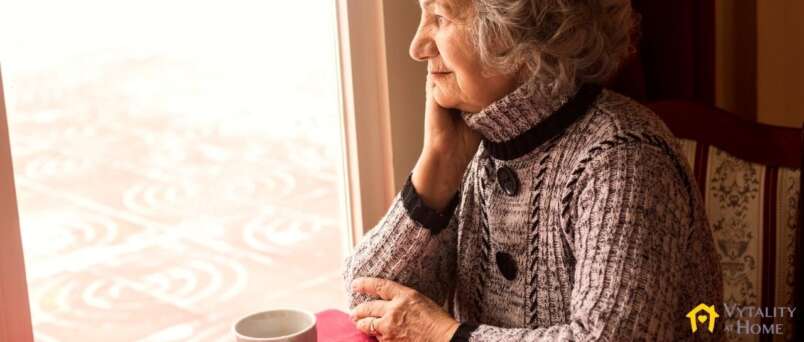Wake me in the Spring: how to avoid winter social isolation with home care services
The days are getting shorter, the nights are getting colder, and despite the lovely sunshine, the cold season officially starts in just over a month’s time. Many seniors will start to think twice about going out and are at risk of becoming lonely and isolated. The good news is that regular home care visits can help seniors stay in their own homes AND stay connected too.
Bedding down for the winter
For many aged seniors, this is a time of year when we start to stay more at home in the warm. We may cut down on social visits and outings, especially when the snow arrives, because it’s too much effort or too difficult to get out.
This can lead to a growing problem here in Canada – social isolation. According to the Government of Canada, around 30% of Canadian seniors are at risk of becoming socially isolated. What’s more our senior population is growing, and those aged over 65 are estimated to make up 25% of the population by 2036.
According to the International Federation on Ageing:
“The number one emerging issue facing seniors in Canada is keeping older people socially connected and active.”
And according to the Government of Canada, social isolation contributes to a wide range of issues for seniors including:
- poor health
- loneliness
- emotional upset
- reduced quality of life
In our society generally it could lead to:
- lack of social unity
- higher social costs
- loss of wealth of experience to communities at large
- the undervaluing of seniors within society
- loss of seniors from the voluntary sector and the workplace
What is social isolation?
“Social isolation is commonly defined as a low quantity and quality of contact with others. A situation of social isolation involves few social contacts and few social roles, as well as the absence of mutually rewarding relationships”.
There can be many reasons why seniors move from being social active and engaged with the community to becoming isolated. Often, a major cause is the loss of mobility and/or poor health, which prevents them from maintaining their previous level of independence.
For example, failing eyesight may mean it is no longer safe for them to drive, and they become reliant on public transport. If they also have mobility issues, accessing such transport may become more problematic if it is a long walk or it’s cold and slippery underfoot.
Transport services from home care providers
At Vytality at Home, we offer a whole range of ways for seniors to get out and about without a car. Our team can arrange taxi services, or our caregivers can help seniors access transport, or take them out on shopping trips. Our team also know the local community groups who may offer transport for seniors, and our help is only a phone call away for our clients. They can even book help via our app!
Home care: a friendly face
One of the key aspects highlighted above is “the absence of mutually rewarding relationships”. This is where receiving care from a regular caregiver is such an advantage. Instead of wondering who will come today, Vytality clients know their caregiver will be the same friendly person, carefully chosen to match their own requirements. (Those living at home with Alzheimers and dementia find this particularly reassuring.)
Our caregivers are genuine “people persons”, who love to hear about our seniors’ family and to talk about their own. In our experience, many caregivers start as professionals and become good family friends, sharing memories, outings and significant events.
Regular home care visits
One of the questions health professionals often ask seniors to check their mental capability is: “What day of the week is it?”. It’s an easy question for those of us with a regular routine, but for isolated seniors, it can be a genuine pause for thought.
Routine and schedules are important for keeping us engaged and active, as each day has a purpose and (usually) a goal. It’s doesn’t have to be a long list of social engagements either. Monday may be laundry day, Thursday is lunch at home with a friend, and Friday your day for regular health appointments such as dental care, podiatrist and hair cuts.
With regular home care visits, a senior’s week can have goals beyond just personal care. Their caregiver can do that laundry, shop for that lunch, and arrange transport for those appointments. Caregivers can also plan in some brain games for Wednesday, and perhaps a social visit every other Thursday. With two hour care visits, there is always plenty of time for one of the most important “social isolation buster” of all – a chat.
Peace of mind for all the family
Regular care visits not only reduce social isolation, they also reassure all other members of the family that someone is checking on their loved one regularly. For working adult children who may not live in the same province, let alone the same city, this is particularly important. What’s more, regular home care also gives everyone something to talk about on phone calls – conversation is a two-way street after all!
Concerned about an isolated or lonely loved one?
Contact us to discuss your concerns, and to discover more ways that home care can help give your loved one the care, companionship and social interaction to age in place in their own home for longer.




